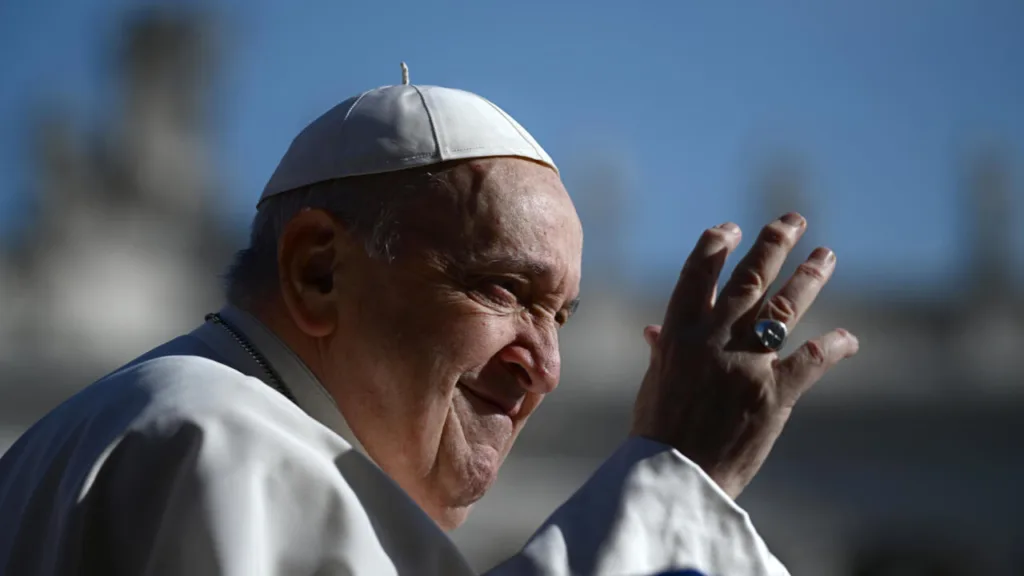Introduction
On April 21, 2025, the world mourned the passing of Pope Francis, the 266th leader of the Roman Catholic Church, at the age of 88. His death, attributed to complications from double pneumonia, marked the end of a transformative era for the Vatican and its global followers. As the first Latin American pope and a Jesuit, Pope Francis brought a unique perspective to the papacy, emphasizing humility, social justice, and interfaith dialogue.
Early Life and Rise to Papacy
Born Jorge Mario Bergoglio on December 17, 1936, in Buenos Aires, Argentina, Pope Francis was the eldest of five children in a family of Italian immigrants. His early life was marked by a commitment to education and spirituality, leading him to join the Society of Jesus (Jesuits) in 1958. Ordained as a priest in 1969, he quickly rose through the ranks, becoming the Archbishop of Buenos Aires in 1998 and a cardinal in 2001.
His election as pope on March 13, 2013, following the resignation of Pope Benedict XVI, was historic. Not only was he the first pope from the Americas, but he also chose the name Francis, inspired by Saint Francis of Assisi, symbolizing his dedication to humility and care for the marginalized.
A Papacy of Firsts and Reforms
Emphasis on Humility and Simplicity
From the outset, Pope Francis distinguished himself with a humble approach. He opted for simpler papal attire, chose modest living quarters, and emphasized the importance of serving the poor and marginalized. His actions resonated with many, earning him the moniker “The People’s Pope.”
Advocacy for Social Justice
Pope Francis was a vocal advocate for social justice. He addressed issues like income inequality, climate change, and the refugee crisis. His 2015 encyclical, Laudato Si’, called for urgent action against environmental degradation, highlighting the moral imperative to protect the planet.
Interfaith Dialogue and Global Outreach
Understanding the importance of unity, Pope Francis fostered interfaith dialogues, building bridges with leaders of various religions. His historic visits to the Middle East and meetings with Islamic leaders showcased his commitment to peace and mutual respect.
Health Challenges and Final Days
Pope Francis faced numerous health challenges throughout his life. Having had part of a lung removed in his youth, he later dealt with sciatica, colon surgery, and respiratory issues. In February 2025, he was hospitalized with severe bronchitis, which progressed to double pneumonia. Despite medical interventions, he passed away on April 21, 2025, at 7:35 a.m.
Global Mourning and Tributes
The news of Pope Francis’s death elicited an outpouring of grief worldwide. Leaders from various nations, including U.S. Vice President J.D. Vance, Indian Prime Minister Narendra Modi, and European Commission President Ursula von der Leyen, paid tribute to his legacy. Religious figures and laypeople alike remembered him for his compassion, humility, and unwavering commitment to justice.
Funeral Arrangements and Burial Wishes
In line with his emphasis on simplicity, Pope Francis had modified papal funeral rites in 2024. He requested a simple wooden casket and chose to be buried at the Basilica of Santa Maria Maggiore in Rome, rather than the traditional burial site beneath St. Peter’s Basilica. This decision reflected his deep devotion to the Salus Populi Romani icon housed there.
Legacy and Impact
Pope Francis’s papacy was marked by efforts to modernize the Catholic Church and make it more inclusive. He addressed contemporary issues head-on, from climate change to LGBTQ+ rights, often facing criticism from conservative factions. Yet, his dedication to dialogue, understanding, and compassion left an indelible mark on the Church and the world.
Conclusion
Pope Francis’s death signifies the end of a significant chapter in the history of the Catholic Church. His leadership, characterized by humility, reform, and a deep sense of justice, will be remembered for generations. As the world reflects on his contributions, his teachings and actions continue to inspire and guide many towards a path of compassion and unity.
